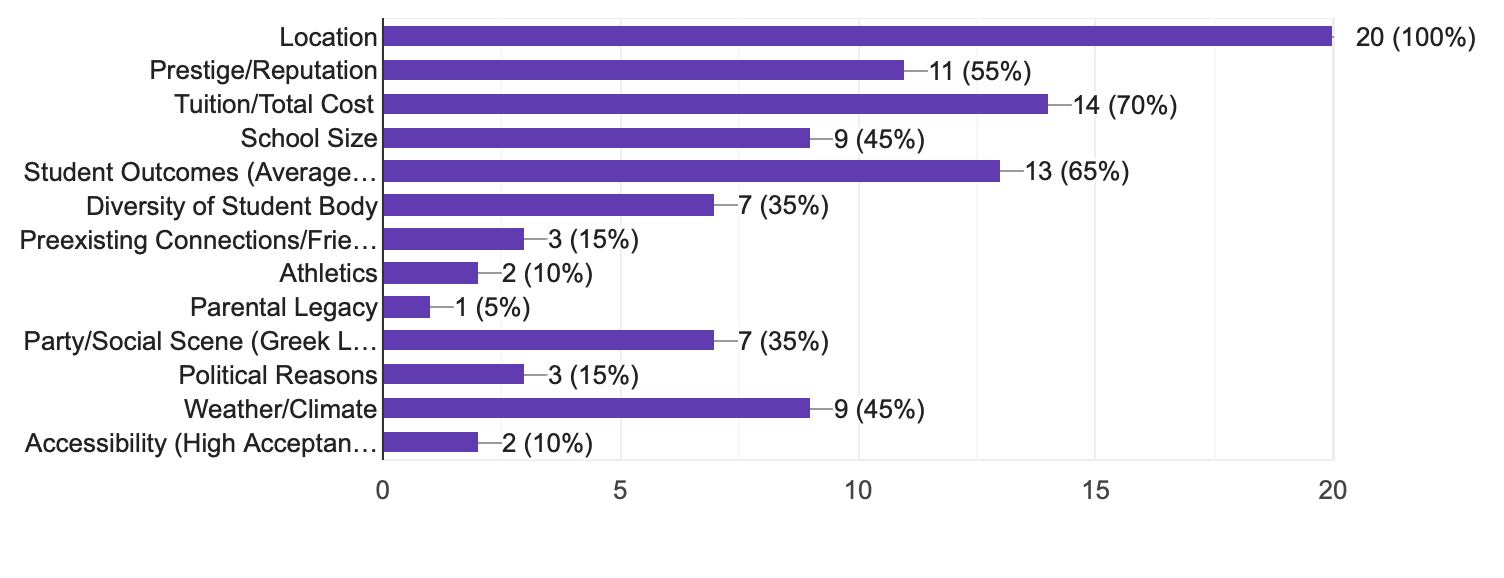As the college application season winds down, many Lincoln seniors are finalizing their post-graduation plans. For some, this means weighing the costs of tuition. For others, it means picturing themselves in a new city or exploring programs to see if they align with their career goals.
A recent online survey conducted by The Cardinal Times and completed by 17 seniors revealed what matters most to students when deciding where to attend. The responses reflect a diverse mix of personal values, financial realities and long-term ambitions.
According to the survey, the most significant factor for students was location. All 17 survey respondents selected it as one of their top five priorities.
“I knew I wanted to be on the East Coast and at a prestigious school, but I also wanted to be close to a major city without actually being in it because I wanted the campus feel,” said Neve Erdman.
The second most selected factor was cost, with 11 students selecting tuition or total cost as a key factor. Several students noted that affordability directly influenced where they applied. However, others emphasized a return-on-investment mindset.
“College is an investment,” one anonymous student wrote. “Ultimately, it is the student outcomes that matter most when making that investment.”
This suggests that while affordability is important, many students are also weighing the potential value of a degree when making decisions.
The third most selected factor was student outcomes after graduation, such as job placement and average salary.
Senior Jonathan Wilkinson ranked this as his top priority.
“I want a school that can maximize my level of success by establishing important connections and developing critical skills to have a prosperous career,” wrote Wilkinson.
Beyond academics and cost, some students pointed to more personal considerations.
Senior Theo Wheeler said he prioritized a small school that would allow for more individual connection with professors. He also sought a school that could support both his STEM and art interests.
Diversity and political values also influenced student responses. One student wrote that they hoped to find a sense of belonging after rarely seeing other people who shared their racial background during their time in Oregon. Another respondent highlighted the importance of attending a school that aligned with their liberal values.
While the factors varied, the results underline a few consistent themes: Lincoln students are thinking critically about where they’ll spend the next chapter of their lives. They’re weighing personal identity, career goals cost and environment to make choices that reflect both who they are and who they want to become.


